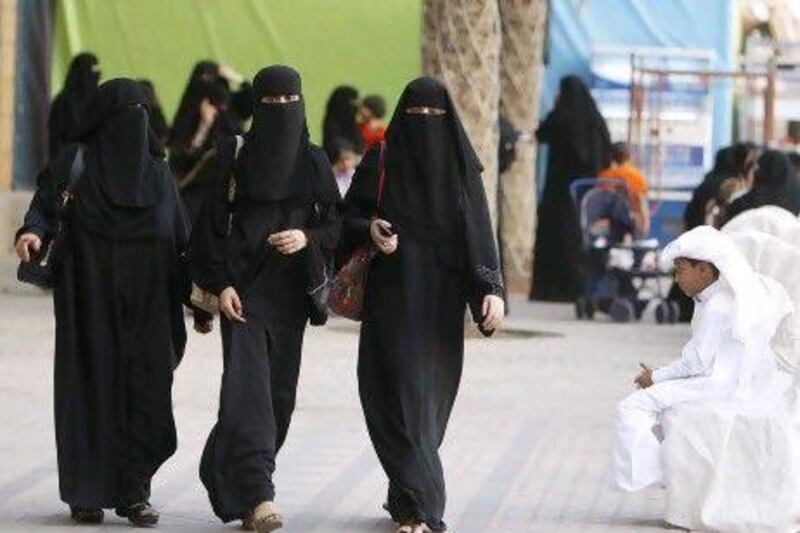A proposal to allow women to keep their faces covered during security checks has been rejected by Saudi Arabia's Shura Council.
The decision, reported yesterday by the Saudi Gazette, stopped a draft law that would have allowed women to continue wearing veils during the checks. The draft also would have required their identity cards to be based on fingerprints rather than photographs, the Saudi Gazette reported.
The Shura Council, a consultative body appointed by the king, rejected the plan on Sunday, although it agreed that female security staff should carry out checks on women, the newspaper reported. It did not say who had proposed the law.
Under Wahhabism, the branch of Sunni Islam practised in Saudi Arabia, men and women are largely segregated in public areas.
Under King Abdullah bin Abdulaziz Al Saud, the government has pressed for women to have better education and job opportunities, and will allow them to vote in future municipal elections.
But conservative forces in the kingdom have continued to push back against reforms.
Some women in Riyadh welcomed the news. Muna Muhammad Al Thaqafi, who is in her 50s, said she had no objection to letting a man see her face for security reasons, the Gazette reported.
"I once did it at a government department when women were not available to check my identity," Ms Al Thaqafi was quoted by the newspaper as saying.
"I uncovered my face to the government employee who was the age of my son."
Earlier this year, police in New South Wales, Australia, were given the authority to demand the removal of burkas and other face veils so they can identify people suspected of committing a crime.
The Australian laws were in response a court case last year in which a Muslim woman was acquitted when a judge ruled she could not be positively identified because was wearing a burqa.
* With additional reporting by Reuters and the Associated Press





